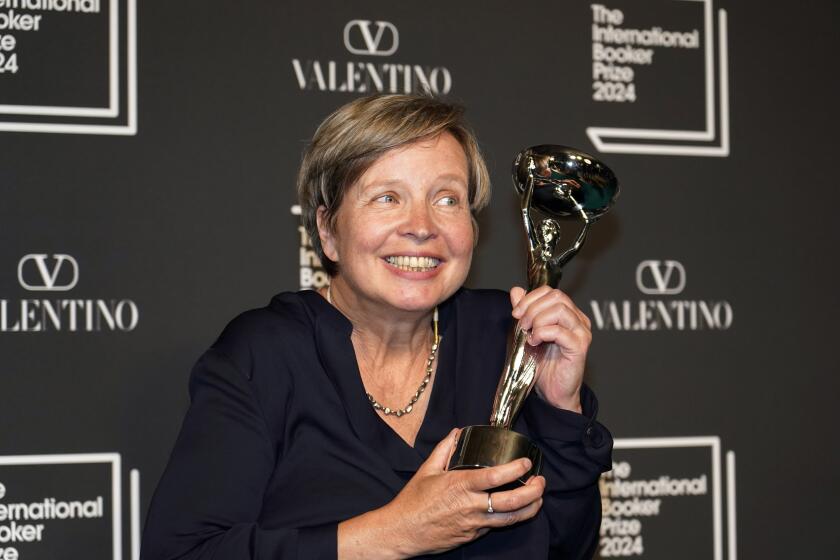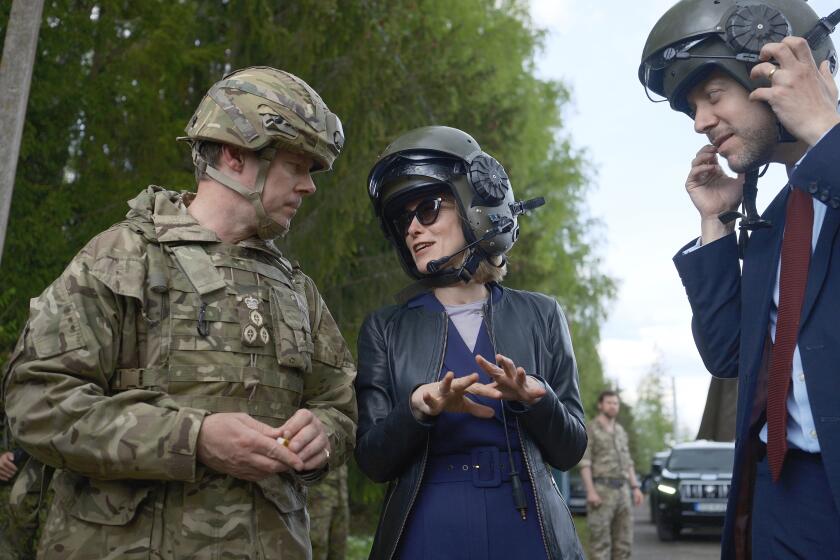Kohl Rejects Soviet Call for Reunification Referendum
West German Chancellor Helmut Kohl on Saturday rejected a Soviet call for an international referendum on German unity and warned that any attempt to block reunification would ruin the East German economy.
Kohl, addressing the annual World Economic Forum meeting in Davos, Switzerland, declared that reunification is a matter for Germans themselves to decide.
In recent days, Soviet President Mikhail S. Gorbachev approved in principle a reunified but neutral Germany, while his foreign minister, Eduard A. Shevardnadze, said that a referendum should be held on the issue, with votes being cast by citizens of all nations forced to go to war or otherwise make sacrifices during Germany’s Nazi era.
“We don’t need a midwife,” Kohl told reporters after speaking to the economists and businessmen in Davos. “Self-determination is a basic right; it is in the charter of the United Nations.”
The West German leader said that others could not set the speed of German reunification “with a schedule and a stopwatch” and that they must not oppose the desire of East Germany for democracy and unity.
Kohl said that East Germans themselves, impatient and frustrated after 40 years of communism, have begun a historical process with a momentum that outsiders cannot control.
Kohl met for an hour with East German Prime Minister Hans Modrow, who also attended the gathering at the Swiss skiing resort, but he declined to reveal the substance of their talk. They will meet again formally in Bonn on February 13-14.
However, Kohl took a tough line toward Modrow, rejecting again the East German leader’s insistence that a reunified Germany would have to be neutral--not a member of East or West military blocs.
Kohl said this reflects the view of someone “who understands nothing about history or geography” and indicated he would talk seriously about reunification only with the leader who emerges from the first free election in East German history, now scheduled to take place March 18.
In a show of confidence, Kohl told the business leaders, “The battle over which ideas create a free society has been decided,” and, referring to their hometowns, said that the late free-market Chancellor “Ludwig Erhard from Fuerth has beaten Karl Marx from Trier.”
Those who attempt to slow the pace of reunification, warned Kohl, risk “the danger of crisis that could overshadow the first peaceful revolution on German soil and a continued mass exodus that wipes out chances of economic recovery the longer it lasts.”
East Germans are still leaving their country, despite promises of democratic reforms and elections, at the rate of 2,000 a day.
Kohl also urged other nations not to fear a reunited Germany, declaring: “Whoever speaks of a Fourth Reich has either not understood history or consciously wants to defame the Germans.”
Another speaker, Wolfgang Berghofer, the highly regarded mayor of Dresden who recently quit the Communist Party, said that East German currency reform is desperately needed to stem the outflow of citizens.
And he told West German politicians that they are not aware of the crisis developing in East Germany.
“The time factor increasingly is becoming of decisive importance,” said Berghofer, who is expected to play a leading political role in East Germany after the March election. “A certain panic is setting in.”
He said that spring could bring an increased exodus and could “lead us all to the edge of collapse.”
“The exodus of East German citizens to West Germany means we will be forced to make decisions this year, whether we like it or not,” Berghofer declared, adding that 5% of the population of his city has gone west in the past two years.
Berghofer said a method must be found to make East Germany’s currency convertible with the West German mark--”and not tomorrow, at once.”
Meanwhile, at a defense studies meeting in Munich, Western experts also rejected the concept of a neutralized Germany.
“The notion of a unifed, neutral Germany is fundamentally destabilizing,” said U.S. Sen. William S. Cohen, a Maine Republican.
And West German Defense Minister Gerhard Stoltenberg declared: “Intact armed forces in an intact alliance do not prevent the reshaping of Europe but promote it. For without stability and predictability, the new security architecture of Europe cannot be realized.”
More to Read
Start your day right
Sign up for Essential California for news, features and recommendations from the L.A. Times and beyond in your inbox six days a week.
You may occasionally receive promotional content from the Los Angeles Times.






